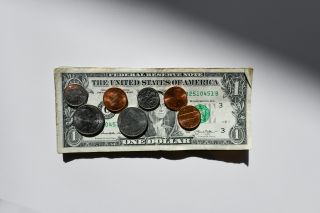Consumer Behavior
What the Cobra Effect Teaches Us About Reward Psychology
Here's a cautionary tale about the psychology of rewards.
Updated February 23, 2024 Reviewed by Ray Parker
Key points
- The cobra effect teaches us that rewards can easily backfire, especially if they're not correctly understood.
- The power of a variable reward is critical, as it can significantly impact a person's behavior.
- Use incentives strategically by understanding the tradeoffs between intrinsic and extrinsic motivation.

Few things can ruin your daily commute faster than a chance encounter with a venomous cobra. And if you lived in New Delhi during the early 1900s, this might happen to you regularly. The streets were rife with cobras during colonial rule, posing a major public safety threat to New Delhians.
The situation became so untenable that the colonial government sprang into action with what they thought was the perfect solution: Instead of the government going in and trying to regulate these pesky serpents, let's make it a team effort by offering cash rewards to anyone who captures and kills the snakes themselves.
This was a well-intentioned reward system, but it backfired spectacularly. And it wasn't merely because ordinary citizens were terrible at catching snakes, often harming themselves. Instead, it was the incentives themselves: Clever New Delhians quickly realized that the more snakes there were, the more money there was to gain. People began breeding cobras in order to turn them in and collect their reward.
What started as a system for eliminating the cobra population actually increased it.
This story has now become immortalized in the psychology of incentives and gave rise to what's known as the cobra effect. This now describes instances when an incentive system backfires and has the opposite effect on the intended behavior. It provides a cautionary tale to anyone looking to apply incentives and rewards to solve a problem.
The cobra effect also provides lessons for marketers. Understanding the psychology of motivation is crucial for driving consumer behavior. And as the British colonialists quickly learned, harnessing the power of incentives is not as straightforward as it always seems. We'll return to this issue of motivational backfire soon. But first, when and how do incentives work well?
The Psychology of Rewards
At a basic level, incentives drive behavior through positive reinforcement. If you give your dog a treat when it sits on command, this rewards that behavior. It'll start sitting on command more and more, anticipating future incentives.
Simple enough. But what happens when you only reward your dog for this behavior "some" of the time? Is this better for motivating that behavior, or worse? If you're like most people, you'd predict this would be much worse. Consistency should be key. But you'd be wrong.
In a classic study, behavioral psychologist Michael Zeiler tested these reward schedules against each other. He and his research team placed pigeons in the same cage and placed them in front of two levers: The first delivered a consistent reward; every time the pigeon pressed it, he would receive a food pellet. The second was a variable reward: Each press wasn't guaranteed to deliver a pellet. Instead, these occurred in random trials roughly 60% of the time.

The results were shocking: The pigeons flocked to the lever that delivered the random incentives, spending nearly twice as much time with it. It turns out that pigeons love pellets, but they love random pellets even more.
This is the power of variable reward. And it's far from limited to pigeons and pellets. Experiment after experiment has shown that the most effective types of reward are those with a general expectation of reward but in which the actual reward comes at random and unpredictable times.
The variable reward is a key insight for marketers to understand. Providing incentives can drive consumer behavior, but this can be supercharged when these come at variable, unpredictable intervals. So, think about the kinds of behaviors you want to increase. This can be anything, from sharing a referral code to visiting a retail location. And think about the current rewards or incentives you currently implement at these junctures of the customer journey. Is there room to add a bit of variability and unpredictability?
There's a lot to say about harnessing the power of surprise. A word of caution, however, is that while variable reward reliably drives behavior, it doesn't necessarily drive positive evaluations for the brand. Social media platforms, for example, rely heavily on various variable rewards to keep consumers returning and staying longer. So consider both the impact on behavior as well as the overall state of the consumer.
Tradeoffs in the Psychology of Motivation
As we saw with the cobra effect, incentives can easily backfire. There is such a thing as "too much" motivation, which will make the behavior less likely. How can that be?
Motivation is complex. For any given behavior, there are multiple reasons why we did it. But these are broken down into two general categories: extrinsic motivation and intrinsic motivation. The most common form is extrinsic motivation; we engage in a behavior for some future reward. This can be anything. You go for a run because we want to improve our time. You post on social media because you want likes, attention, or followers.

But there's another kind altogether: intrinsic motivation. You engage in the behavior just because. If you go on a run just because you like it—irrespective of any future gains—this is intrinsic motivation. Artists who engage in their craft because of a love for their medium are deeply motivated by intrinsic reward. Some athletes play the game for money; for others, it's for the sheer love of the game. With all the awards, accolades, attention, and other extrinsic factors stripped away, you'd still engage in this behavior. That's intrinsic motivation.
And here's the thing: There's a major tradeoff between these two types of motivation. Research has found, for example, that when we're already intrinsically motivated to engage in a behavior, adding an extrinsic motivator actually decreases our likelihood of engaging with it. Many children, for example, are intrinsically motivated to draw. They'll draw, draw, and draw for the sheer enjoyment of it. So what happens when you offer to pay them $1 for every drawing? After a brief spike in frenetic production, the behavior slows to a halt.
This is known as the overjustification effect. And it isn't limited to children's art. It's a robust effect with all behaviors and activities: When you're already intrinsically motivated, applying extrinsic reward backfires and brings down the behavior.
This should give marketers much-needed caution when introducing rewards into the consumer experience. Extrinsic motivators are great at driving consumer behavior when there's a low level of existing passion for them. If a given consumer is already passionate and, therefore, intrinsically motivated to share your brand with friends, introducing a rewards program (which provides extrinsic motivation) will likely have a negative impact on their likelihood to do so. This is precisely the approach Tait Duryea, CEO of real estate investment firm for pilots Turbine Capital, takes with referrals,
“Instead of incentivizing referrals, we ask for ‘goodwill’ referrals. We take goodwill referrals as a sign of intrinsic motivation from our customers and a signal showing our client-centric approach is working."
Final Thoughts on the Psychology of Incentives
The psychology of rewards is a crucial component in any business. However, they should be seen as the proverbial double-edged sword: When utilized correctly, incentives can provide a major boost. But when they're mishandled, they can unleash chaos. They can make or break your business.
And if you happen to find yourself with a serious snake problem, you may want to avoid incentives altogether.
This post also appears on the branding psychology blog NeuroScienceOf




